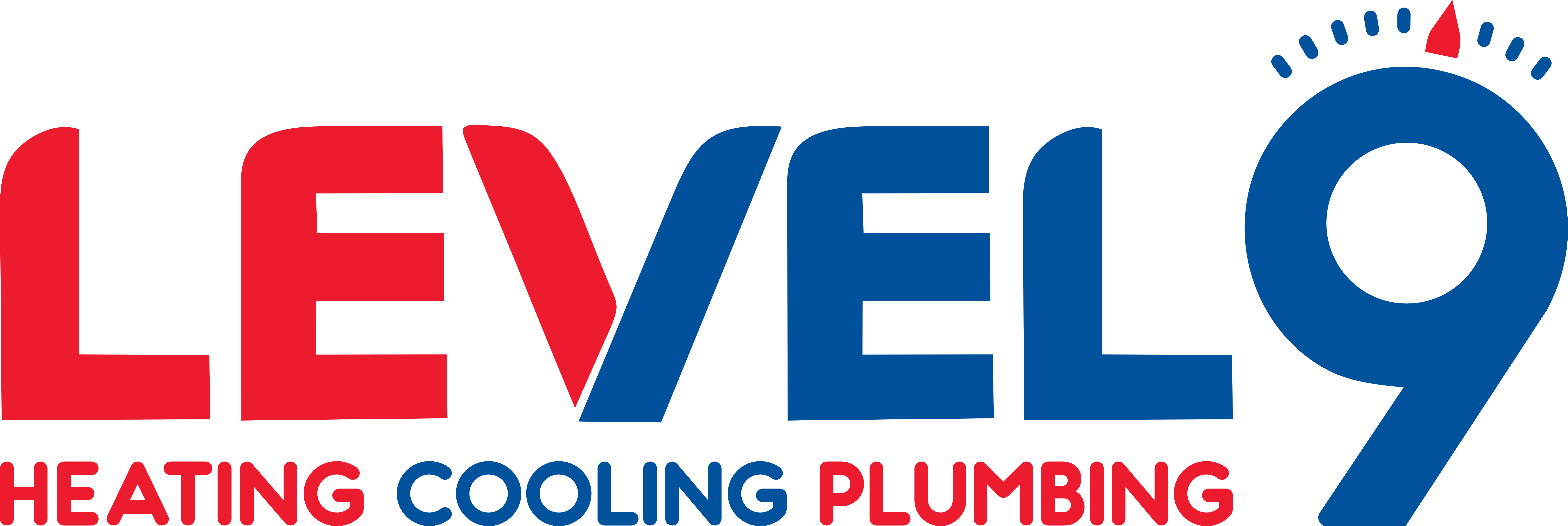A home energy audit identifies the biggest energy consumers in your home and teaches you how to take suitable actions to cut your home’s energy consumption. This type of audit provides a clear picture of your home’s energy use and is recommended before making any large energy improvements. You don’t want to make energy improvements that aren’t necessary while avoiding those that can significantly reduce your home’s energy use. A home energy audit can help you avoid this mistake. Explore how home energy audits work and their top three benefits.
How Does a Home Energy Audit Work?
During a home energy audit, a licensed auditor from Level 9 Heating, Cooling, and Plumbing will visit your home for several hours. During the audit’s first phase, the auditor will walk through your home and around your property to determine any sources of large energy consumption or energy loss. The auditor’s evaluation will consist of inspecting your home’s heating and cooling system, attic and basement areas, insulation levels, and all windows and doors.
The second phase of the audit involves the auditor performing a number of tests, with one of the most important being an airtightness test to see how airtight your home is and whether any air leaks exist. Many auditors refer to this type of test as a blower door test.
To perform an airtightness test, the auditor will seal your home and place a large fan inside a ground-level room, such as the living area or kitchen. With the fan turned on, it allows the auditor to spot air leaks around doors, windows, and any cracks in the house. The auditor can spot a lot of the air leaks with his or her hand. For hard-to-spot leaks, an auditor will often use a feather to see where the leaks occur. By identifying all sources of large energy consumption and energy loss, it becomes possible to make improvements that notably make your home more energy efficient.
A lot of auditors conduct additional assessments to determine a home’s energy usage and areas of energy loss. Some of the tools that auditors most often use to perform additional assessments include:
- Thermographic scanners
- Infrared cameras
- Furnace efficiency meters
- Surface thermometers
After all assessments and tests have been performed, during the final stage of the audit, an auditor will analyze your past utility bills to detect your energy usage patterns. He or she will use bill data along with the information collected during the first and second stages of the audit to create a list of energy-saving actions you can take.
Now that you know how home energy audits work, let’s explore their top three benefits.
1. Pinpoint Energy-Saving Opportunities and Reduce Carbon Footprint
A home energy audit reveals where the most energy is consumed and lost in your house. The auditor pinpoints energy-saving opportunities and recommends improvements to reduce the home’s energy consumption. Some of the most common home improvements that auditors suggest include:
- Cleaning air ducts
- Upgrading kitchen appliances
- Using different settings on appliances
- Installing a programmable thermostat
- Changing out shower heads
When you make improvements to reduce your home’s energy usage, you simultaneously make your carbon footprint smaller; this is particularly helpful to those wanting to reduce the amount of greenhouse gas emissions produced by their homes. The audit will identify where and how to make your home more friendly to Mother Nature and whether to do any of the following to reduce your carbon footprint:
- Fix air leaks
- Install new insulation
- Upgrade lighting hardware
2. Boost Heating and Cooling Efficiency
Home energy audits help you identify and fix sources of energy loss, such as air leaks and poor ventilation, which makes it easier for the HVAC unit to heat and cool your home all year. This results in less wear and tear on the HVAC system, extending its lifespan and lowering heating and cooling expenses.
In addition to checking the HVAC system, an auditor will evaluate the hot water supply. If any of the HVAC or hot water systems’ components aren’t functioning correctly, the auditor will suggest whether to repair or replace them. Licensed auditors have the knowledge and training to determine whether a system needs to be repaired, replaced, or upgraded. Remember that following repair and replacement suggestions is key to getting the most out of a home energy audit.
3. Improve Your Comfort, Health, and Home’s Safety
A home energy audit gives you more control over your home’s indoor environment and comfort by discovering the source of high heating and cooling expenses, paramount to reducing energy bills. Maybe you notice high heating bills during cold St. Louis winters, but you don’t know why. With a home energy audit, you can have your ventilation system inspected to see whether it needs repairs. You can also determine whether your home needs more insulation to improve indoor comfort.
Along with improving indoor comfort, an energy audit can improve indoor air quality along with your health and safety. During the audit, an auditor specifically looks for sources of problems that negatively impact the air and your health, such as loose electrical wires and gas leaks. He or she may also perform different combustion tests on appliances powered by fuel or gas. Furthermore, the auditor will look for moisture issues, which are crucial to addressing poor indoor air quality concerns. By following the auditor’s recommendations to fix moisture and gas leak problems, you’ll improve your home’s indoor comfort and air quality and your overall health.
Signs It’s Time to Get a Home Energy Audit
If it’s been more than a year since your last home energy audit, you should consider booking one today. You should also schedule an audit if you notice any of the following signs in your home:
- Constant interior drafts
- Hot and cold spots
- Aggravated allergy or asthma symptoms
- Leaky ductwork
- Improper ventilation
- High levels of gas or carbon monoxide
What Should I Do After a Home Energy Audit?
After the home energy audit is completed, you’ll receive a report that outlines your home’s conditions. This report will detail all sources of energy consumption and energy loss within the home as well as spell out multiple energy-saving opportunities. Ideally, you should implement all free improvement suggestions first, then any inexpensive suggestions. Next, you’ll want to list the pros and cons of the remaining recommendations and have the most beneficial ones performed first. Remember, if any of the improvements don’t fall within your comfort zone, leave them in the hands of a professional.
Schedule Your Next Home Energy Audit With Level 9 Heating, Cooling, and Plumbing
Every source of energy loss in your home that goes undetected or unaddressed will increase your monthly energy expenses. If you’re ready to make your home more energy efficient, contact Level 9 Heating, Cooling, and Plumbing now to book your next home energy audit. The audit will improve indoor comfort, help you save on energy expenses, and increase the lifespan of your heating and cooling systems.



